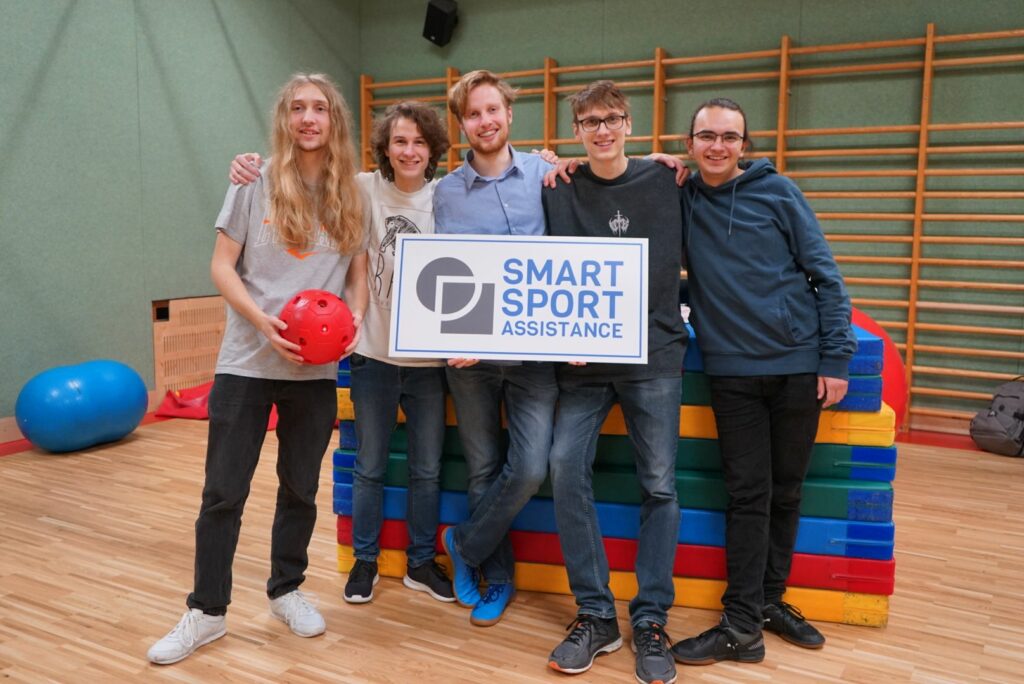The UNIKATE prize honours ideas for new technological developments that enable people with disabilities to have more self-determination, equal participation in society and thus live together as equals – inclusion in the sense of the UN Convention on the Rights of Persons with Disabilities.
The prize is aimed at pupils and students with creative ideas and a technical background who want to develop an inclusive technology – a UNIKAT – together with a person with disabilities.
In this year’s ideas competition, two of the six prize-winners came from the Smart Sport Assistance project.
The following were honoured:
The diploma thesis “Digital bell ball” of the HTL Rennweg.
The aim of the diploma thesis is to develop a ball that solves the current problems of the analogue bell ball. When the bell ball stops rolling, it no longer emits an acoustic signal and can therefore no longer be found by people who are blind or visually impaired. Similarly, in the game of “goalball”, it is not actually desirable for the ball to make a sound when it is in the player’s own half of the pitch. The developed digital bell ball should therefore be able to detect when a sound is required and emit a signal via a loudspeaker placed inside the ball, the volume and sound frequency of which can be individually adjusted via a developed, barrier-free app. It should also be possible to communicate the speed of the ball to players with visual impairment using various light signals. In order to make the ball stand out from its surroundings (flooring, background), the app will also have a setting for the contrast of the standard built-in lights.

The second prize was awarded to the “BodyFit” diploma thesis from HTL Donaustadt.
The HTL students are working on the development of a smart training assistance system for pupils with blindness and visual impairments. The mobile phone app they have developed is intended to simplify individual fitness training for people with blindness and visual impairments and make it self-determined. The users of the mobile app are guided through the training sessions with the help of a “talking fitness coach” and, thanks to the use of state-of-the-art sensor technology (e.g. inertial sensors), receive safety instructions on the fitness equipment as well as training records and statistics on the goals they have achieved.